-
 +24 +1
+24 +1The Surprisingly Sinister History Behind Texas’s Cliff Chirping Frog
It’s named for frontier naturalist Gabriel Marnoch, who led a life of crime while discovering new species.
-
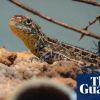 +19 +1
+19 +1Australian earless dragon last seen in 1969 rediscovered in secret location
Victorian grassland earless dragon was once common west of Melbourne but numbers declined due to habitat loss and predators such as feral cats
-
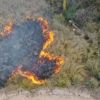 +22 +1
+22 +1Before the colonists came, we burned small and burned often to avoid big fires. It's time to relearn cultural burning
Before the colonists came, we managed the land with careful use of cool burns. To stop giant bushfires, we have to learn again how to care for country.
-
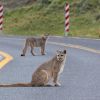 +23 +1
+23 +1While humans were in strict lockdown, wild mammals roamed further – new research
Researchers tracked 2,300 wild mammals during the strict 2020 lockdowns and found they moved 73% further than in the previous year.
-
 +15 +1
+15 +1How climate change is making our allergies worse
Between April and May, the birch pollen season is in full swing. Eyes water, throats sting, noses run: doctors call these immune reactions "allergic rhinitis." In France, nearly one adult in three is said to suffer from a pollen allergy, according to the French National Agency for Food, Environmental and Occupational Health Safety (ANSES).
-
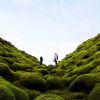 +29 +1
+29 +1An epic global study of moss reveals it is far more vital to Earth's ecosystems than we knew
Data from 123 sites across all continents, including Antarctica, show mosses affect all major soil functions critical for sustaining life on Earth.
-
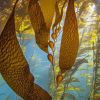 +15 +1
+15 +1A Hidden Underwater Resource Is Worth Way More Than Expected, Study Reveals
Researchers have just calculated the value society gets from a common but hidden underwater resource, and found it's way higher than we ever expected.
-
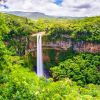 +16 +1
+16 +1Could the dodo come back from extinction?
The dodo's genome has been sequenced from a DNA sample, but that's just the first hurdle to overcome in bringing a species back from the dead
-
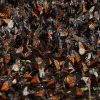 +18 +1
+18 +1Monarch butterflies lose sanctuary in Mexico as climate changes
The population of endangered monarch butterflies wintering in Mexico's Michoacan dropped by 22% in just one year.
-
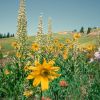 +4 +1
+4 +1Nature is out of sync—and that’s reshaping everything, everywhere
Everything in nature—flowering, breeding, migration—lives and dies by a clock that is being recalibrated by climate change. We don’t yet know how severe the consequences may be.
-
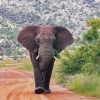 +13 +1
+13 +1‘A wake-up call’: total weight of wild mammals less than 10% of humanity’s
The total weight of Earth’s wild land mammals – from elephants to bisons and from deer to tigers – is now less than 10% of the combined tonnage of men, women and children living on the planet. A study by scientists at Israel’s Weizmann Institute of Science, published this month, concludes that wild land mammals alive today have a total mass of 22m tonnes. By comparison, humanity now weighs in at a total of around 390m tonnes.
-
 +4 +1
+4 +1Ecosystem collapse ‘inevitable’ unless wildlife losses reversed
Scientists studying the Permian-Triassic mass extinction find ecosystems can suddenly tip over
-
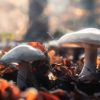 +20 +1
+20 +1Does a Vast Network of Fungi Connect Forests? Here's What We Know.
The possibility that communication networks of fungi exist connecting forest ecosystems in a 'wood-wide web' has increasingly gained attention among researchers in recent decades.
-
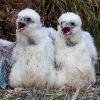 +15 +1
+15 +1The Endangered Species Act Turns 50: Assessing Successes & Failures
Thanks to the ESA, at least 227 species have been saved from extinction and 110 species have seen a tremendous recovery including American alligators, bald eagles, peregrine falcons, and humpback whales.
-
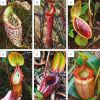 +20 +1
+20 +1This Species of Carnivorous Plant Evolved Into a Toilet And Is Now Winning at Life
Some species of carnivorous pitcher plant, Nepenthes, have switched from capturing and digesting insects to absorbing animal poop for their daily dose of nutrients – and it's a switch that's proving very beneficial.
-
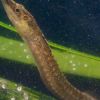 +20 +1
+20 +1DNA in the water shows South African scientists where to find a rare pipefish
Keeping track of the world’s wildlife populations is fundamental to conservation efforts in the face of the continued deterioration of global biodiversity. But some species are harder to study than others. Some aquatic species, for instance, elude detection because they are extremely rare and sparsely distributed.
-
 +18 +1
+18 +1In the Race To Save Earth's Biodiversity, Water Is Getting Its Due
Nature supports life on Earth. We have a commitment anew to heal her.
-
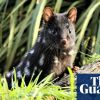 +12 +1
+12 +1Release of 10 quolls boosts ‘insurance’ population of endangered marsupial
The animals were released into Aussie Ark’s 400-hectare Barrington Wildlife Sanctuary
-
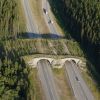 +21 +1
+21 +1Researchers discover secret of building a better wildlife overpass
A group of researchers at the University of British Columbia got to work locating, measuring and then evaluating a number of these overpasses to see how different dimensions impact how effective an overpass is at encouraging wildlife to cross.
-
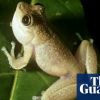 +13 +1
+13 +1Australia’s mountain mist frog declared extinct as red list reveals scale of biodiversity crisis
Experts describe it as a ‘beautiful endemic rainforest species’, one of several that have not been seen for decades
Submit a link
Start a discussion




















